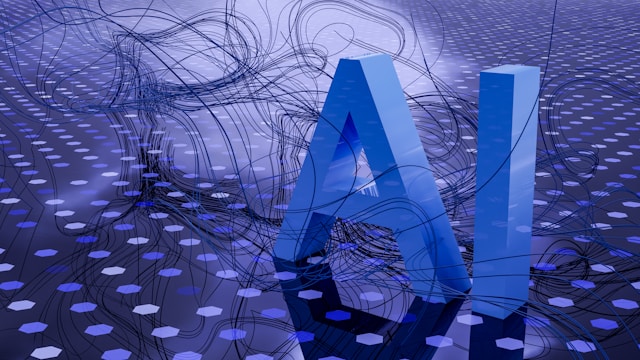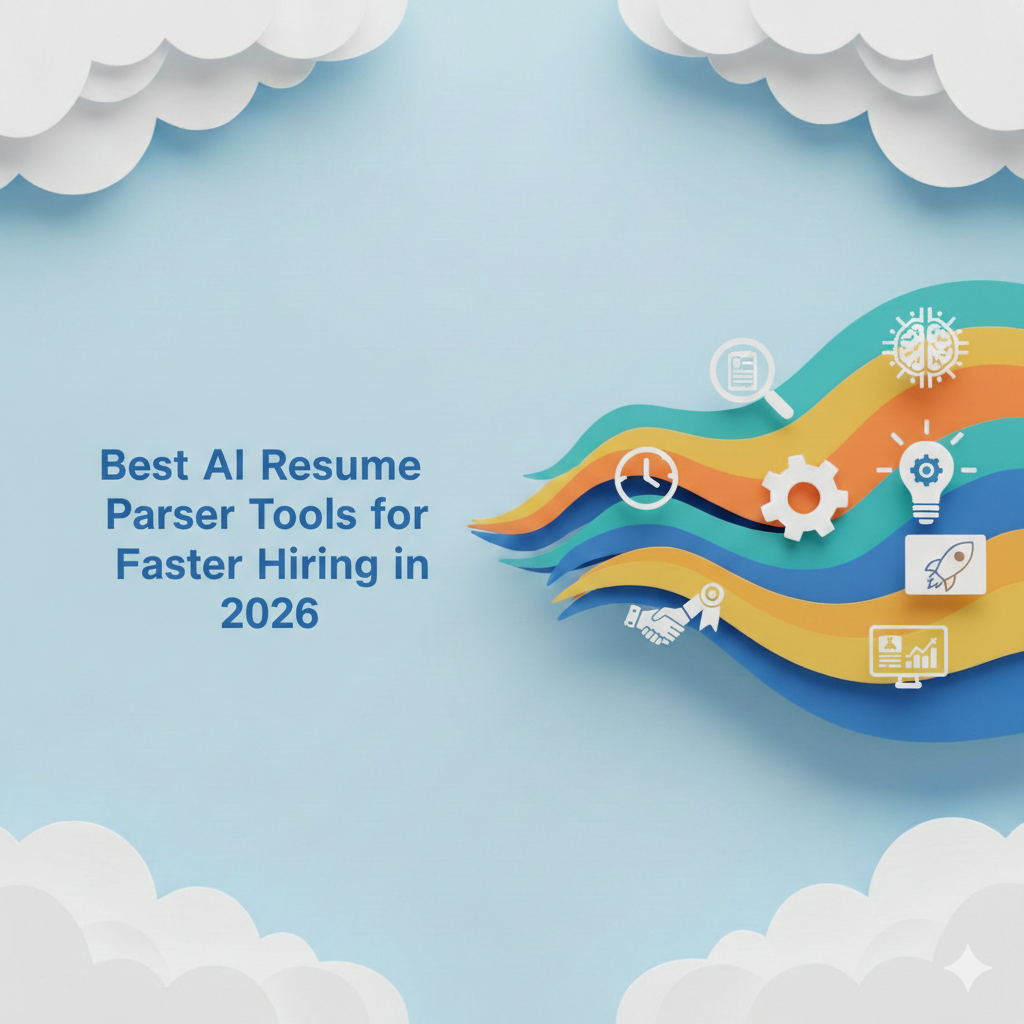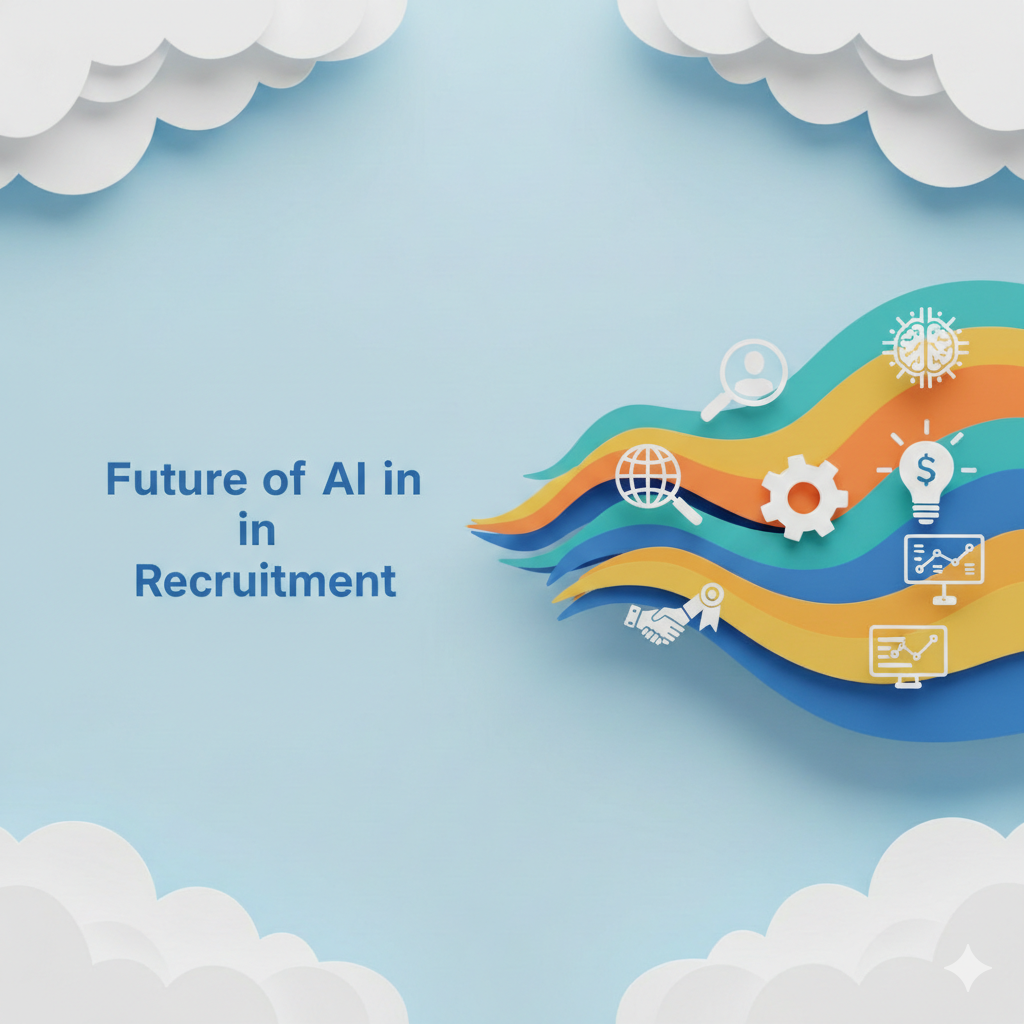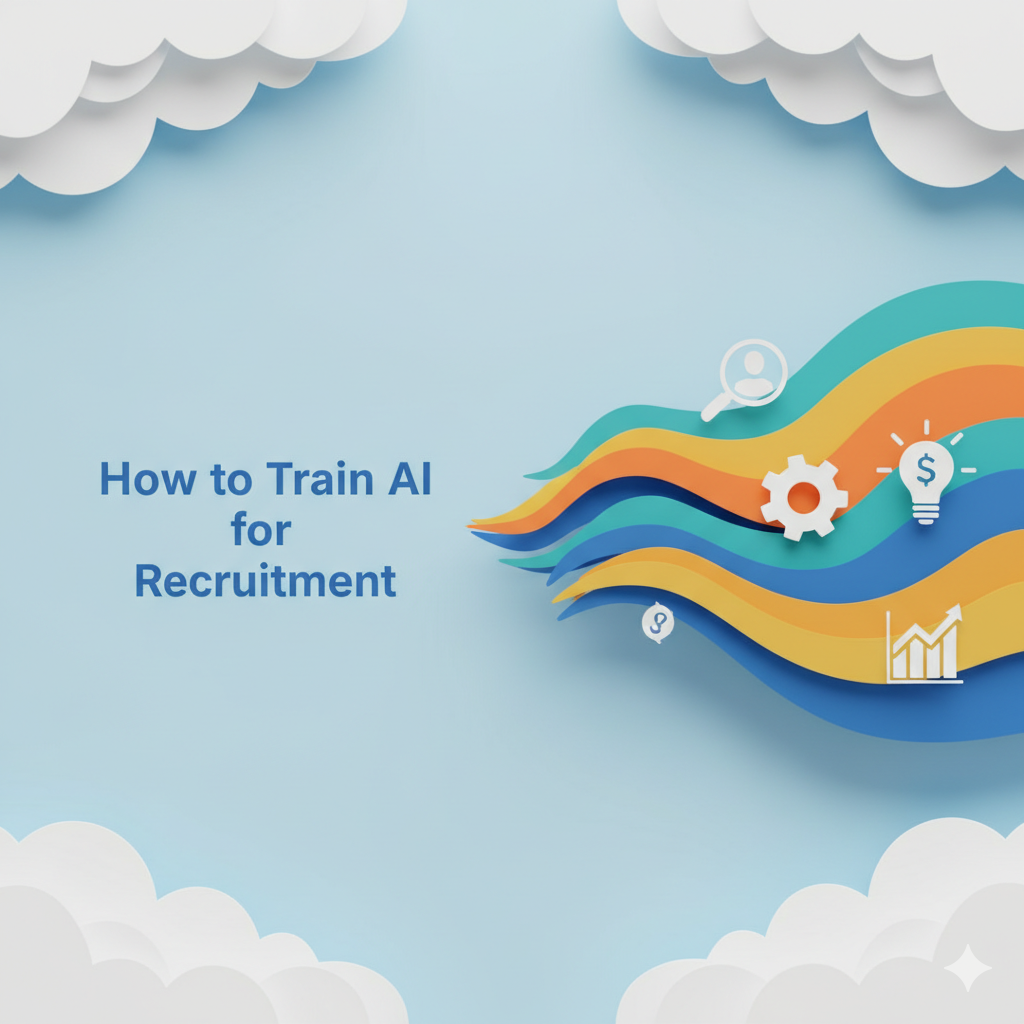AI Interview Tools for Hiring: Making Recruitment Smarter and Simpler

Hiring doesn’t have to be a slow, manual grind.
With AI interview tools, you can automate the most repetitive steps, screening, scoring, and scheduling, so your team spends less time on logistics and more time meeting qualified candidates.
These tools let you run interviews 24/7, engage candidates automatically, and move top talent forward without delays. Platforms like HRMLESS use conversational AI to reduce ghosting, send instant nudges through SMS or email, and cut down on no-shows—so the hiring process stays active, even when you're not online.
AI interview tools help you effortlessly scale hiring by removing bottlenecks and bias. Whether you’re filling a single role or staffing at scale, automation ensures you stay fast, fair, and focused.
In this blog, we will cover:
- What AI interview tools are and how they work
- The real impact of AI on speed, bias reduction, and consistency
- How to choose the right AI hiring platform for your team
Let’s break it down!
What Are AI Interview Tools for Hiring?
AI interview tools use smart technology to automatically talk to job candidates and evaluate them. They handle interviewing, scoring, and scheduling faster than people can. These tools help you find the best candidates while saving time and reducing bias.
Definition and Core Features
AI interview tools are software systems that conduct interviews without a live person. They use pre-set questions and algorithms to assess answers.
Main features include:
- 24/7 interview availability: Candidates can complete interviews at any time.
- Automated scoring: The system ranks candidates based on responses.
- Scheduling: Top candidates get automatic invites to set interview times.
- Candidate engagement: Tools like SMS and email keep candidates interested.
Key Benefits in Recruitment
These tools make hiring faster and easier. You don't have to spend hours on phone screens or sorting resumes. AI does the first round for you, so only qualified applicants move forward.
Benefits include:
- Saving 2-3 hours per hire by cutting manual tasks.
- Reducing no-shows by inviting only engaged candidates.
- Removing unconscious bias for fairer hiring.
- Handling large numbers of applicants without stress.
Evolution of Interview Technology
Interview technology has evolved from simple scheduling to fully conversational AI systems.
Starting with video or phone interviews, tools now:
- Talk to candidates directly with bots.
- Score abilities automatically for objective decisions.
- Automatically invite top candidates to book interviews.
This shift helps companies scale hiring remotely. Platforms like HRMLESS lead this change by combining AI with automated scheduling and communication.
How AI Interview Tools Improve the Hiring Process?
AI interview tools help you save time, improve fairness, and make better decisions. They handle basic tasks so you can focus on qualified candidates. These tools also help keep evaluations fair and reduce bias in hiring.
Automating Candidate Screening
AI tools screen candidates automatically by asking key questions and scoring their answers. This lets you handle more applicants without extra work. Candidates can complete interviews anytime, making the process faster.
You avoid spending hours reading every resume or scheduling calls. The AI filters out less qualified candidates, so only the best move forward. This saves time and keeps your pipeline full of quality talent.
Ensuring Consistent Evaluations
AI tools evaluate candidates using the same criteria every time.
Your team applies a fair, standard process to all applicants, removing the risk of different interviewers making uneven judgments.
Consistent scoring gives you clearer insights into who fits your role best. AI creates objective data based on answers, skills, and behaviors. You can compare candidates easily and avoid guesswork.
The consistent process also speeds up decision-making. You can trust the results from automated interviews to reflect real potential.
Reducing Unconscious Bias
AI helps reduce bias by focusing on skills and answers instead of factors like age, gender, or background. This leads to a more diverse and fair hiring process.
Tools like HRMLESS prioritize fairness and remove human bias from early evaluations. They score candidates using data, not opinions. This supports equal opportunity for all applicants.
By cutting bias, you also improve your company's reputation. Candidates feel respected when treated fairly, increasing their interest and engagement.
Live Interviews vs AI Interview Tools: Which Is More Effective?
Still on the fence about switching from traditional interviews to AI-powered tools?
Live interviews are time-consuming and can vary depending on the interviewer. AI tools, on the other hand, run 24/7, ensure consistency, and free up your time, without compromising on candidate quality.
Here's how they compare:
Category
Live Interviews
AI Interview Tools
Scheduling
Manual coordination, time zone conflicts
Automated, 24/7 availability
Screening Volume
Limited by team bandwidth
Handles hundreds of candidates simultaneously
Consistency
Varies between interviewers
Uniform questions and scoring every time
Bias Reduction
Prone to unconscious bias
Focuses on skills and responses, not demographics
Speed to Hire
Often delayed by availability issues
Cuts time to hire by 60%+
Candidate Experience
Relies on interviewer quality and follow-up
Self-paced, flexible, instant updates
Cost Efficiency
Requires more staff time and resources
Reduces manual hours and scales without extra cost
Data & Analytics
Limited note-taking or unstructured feedback
Structured scoring, trackable data, and dashboard insights
If you're hiring at scale or need to save time without sacrificing quality, AI tools like HRMLESS can offer major advantages.
Choosing the Best AI Interview Tools
Finding the right AI interview tool means looking at how well it fits your hiring needs, how it works with your current systems, and how it protects candidate data. These factors help you choose a tool that speeds up your hiring while keeping your process smooth and secure.
Important Selection Criteria
Look for AI interview tools that focus on speed and accuracy.
- Your tool should automatically handle candidate pre-screening, scoring candidates based on skills and fit to save time.
- Features like 24/7 interview availability let candidates complete interviews at their convenience.
- Consider how the tool engages candidates. Automated SMS or email reminders reduce no-shows.
- Many tools use conversational AI to keep candidates interested and reduce ghosting.
- Ensure the system is easy for both your team and candidates. A simple interface means less training and faster adoption.
Integration with Applicant Tracking Systems
Your AI interview tool needs to work well with your current Applicant Tracking System (ATS).
Integration ensures candidate data flows smoothly from interview to hiring stages, avoiding manual entry errors. Check if the tool can automatically sync interview results, scores, and notes.
A strong ATS integration keeps your workflow organized. You can track every candidate's progress without juggling multiple platforms. HRMLESS, for example, offers built-in ATS integration to switch between systems seamlessly. This connection saves you hours per hire by cutting down on admin work.
Data Security and Privacy Considerations
Protecting candidate data is crucial.
Depending on where you operate, choose AI interview tools that meet current data privacy laws like GDPR or CCPA. Ask about data storage, encryption, and access controls to ensure personal information stays safe.
Check if the tool offers candidate consent options for recording or analyzing interviews. Transparency builds trust and keeps your hiring ethical. A secure system guards your candidates and protects your company from data breaches and compliance risks.
Future Trends in AI-Based Hiring Solutions
AI hiring tools are improving quickly. You'll see better ways to understand candidate answers, smoother experiences for candidates, and more options to fit your unique hiring needs. These changes help you hire faster and smarter.
Advances in Natural Language Processing
Natural Language Processing (NLP) is getting smarter at understanding how candidates speak and write. AI interviewers can go beyond simple yes/no answers. They analyze tone, emotion, and context to judge skills and fit better.
With NLP improvements, AI can handle more natural conversations. Candidates can explain their experience freely, and the system picks up on details you might miss in a traditional screen. This reduces bias by focusing on skills and potential.
Your hiring process becomes more accurate. Candidates answer on their own time, and you get deeper insights without extra work.
Enhanced Candidate Experience
Candidates want hiring to be quick and clear.
AI interview tools now offer 24/7 availability, meaning candidates can complete interviews anytime that suits them. This flexibility lowers no-show rates and speeds up your workflow.
AI also improves communication. Automated messages remind candidates about upcoming steps and keep them engaged. This cuts down on ghosting and maintains momentum through every hiring stage.
A better candidate experience means a better company reputation. When you use AI tools that focus on engagement, candidates feel respected and informed.
Increased Customization Options
Hiring needs vary by role and company.
AI tools now offer more ways to customize interviews and workflows. You can tailor questions, scoring models, and follow-up schedules to fit your goals.
Customization lets you focus on what matters for each position. For example, you could weigh communication skills higher for sales roles or technical ability more for engineers.
More control also means less manual work. You set up rules once, and AI does the rest—automatically screening, scoring, and scheduling. This flexibility helps you scale hiring without losing quality.
Wrapping It Up
AI interview tools are no longer the future; they’re the smartest way to hire right now.
From saving hours on screening to reducing bias and improving consistency, these tools help you focus on what really matters: finding the right talent, faster. Whether you're hiring for one role or a hundred, automation ensures your process is efficient, fair, and scalable.
Platforms like HRMLESS make this shift seamless with 24/7 interviews, conversational AI, and real-time scoring—all built to support your goals.
Want to experience smarter hiring firsthand?
Start your free trial with HRMLESS today, because great hiring shouldn't slow you down.
Frequently Asked Questions
Still wondering how AI interview tools can fit into your hiring strategy? Here are some practical questions people often ask, along with short, valuable answers that cover what we haven’t already discussed in the blog.
How long does it take to set up an AI interview tool?
Most plug-and-play AI tools can be set up in under an hour. Platforms like HRMLESS require minimal onboarding, so you can start screening candidates the same day without slowing your team down.
Can AI interview tools assess soft skills accurately?
Yes, some tools analyze tone, language, and response structure to gauge communication and critical thinking. While they don’t replace in-person judgment, they provide consistent, data-backed insights to shortlist candidates effectively.
What industries benefit most from AI interviews?
AI interview tools are especially useful in high-volume hiring industries like retail, customer service, healthcare, and tech. Anywhere speed, consistency, and fair screening are priorities, AI adds measurable value.
Do candidates prefer AI interviews?
Many do, especially for early screening. It lets them respond on their own time without waiting for a call. A smooth, mobile-friendly experience can even boost your employer brand and reduce early drop-offs.
Can AI tools support multiple languages?
Yes, top platforms offer multilingual support for global hiring. This allows you to reach a wider talent pool and provide a consistent experience for candidates across different regions and backgrounds.
Featured
Subscribe to ournewsletter
Related posts
Explore the world of photography with our curated selection of
portfolio websites that showcase creativity and innovation.




